
Clive Bull 1am - 4am
7 December 2023, 23:13 | Updated: 8 December 2023, 00:17
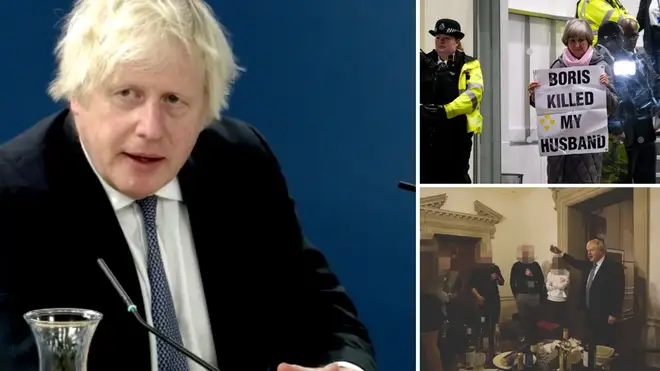
Boris Johnson has been criticised by the families of Covid-19 victims after he defended the actions of Downing Street staff against accusations of holding parties during the pandemic.
Charles Persinger, whose wife and mother died, told LBC News that the former Prime Minister's comments on his second day at the UK's Covid inquiry amounted to "gaslighting".
Covid-19 Bereaved Families for Justice UK said Mr Johnson's remarks "showed shocking disrespect" to the victims of the pandemic.
Matt Fowler, the families group's co-founder, told LBC News that the former PM was "somebody whose relationship with the truth is entirely philosophical."
MrJohnson was asked why he had not done more to stop parties - which resulted in Partygate - from taking place at Downing Street.
"I think that the trouble was, as I said, that people were working extremely hard in tough circumstances," the former Prime Minister told the inquiry.
"Could you have done more to stop it?" he was then asked.
Read more: Ten things we learned from Boris Johnson's second day at the Covid inquiry
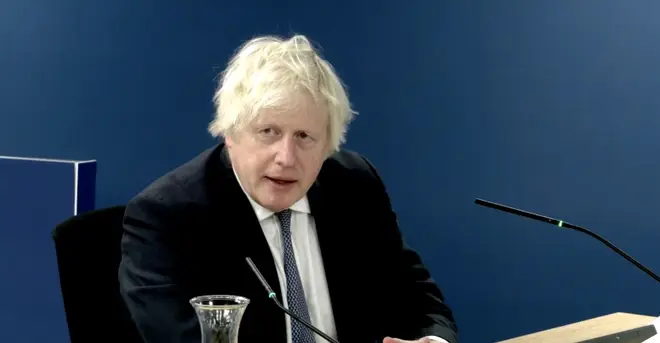
The former prime minister replied: "Given what I knew at the time about what was going on, the answer to that is no."
Mr Johnson then admitted he maybe could have told staff to be more "mindful of the rules and how things would appear".
He also said the media coverage of the parties that took place in Downing Street during the pandemic gave the public an inaccurate impression.
Mr Johnson told the inquiry that "the version of events that has entered the popular consciousness about what is supposed to have happened in Downing Street is a million miles from the reality of what actually happened in Number 10."
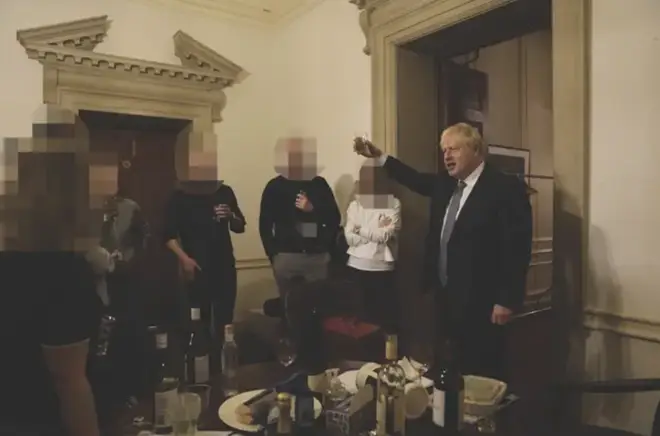
The former Prime Minister said he was speaking on behalf of "hundreds and hundreds of hard working civil servants who thought that they were following the rules".
He told the inquiry that the "characterisation, the representation, has been of what civil servants and advisers were doing in Number 10 has been a travesty of the truth".
Mr Johnson was also asked why he had not done more to stop parties from taking place at Downing Street.
"I think that the trouble was, as I said, that people were working extremely hard in tough circumstances," he told the inquiry.
But Mr Persinger said: "This man isn't accepting any responsibility for his part in the pandemic, or the mismanagement.
"He tries to gaslight still - he hasn't stopped. If anything it's getting worse. A man who lacks integrity."
Becky Kummer, a spokesperson for the bereaved families group, said: “He admitted that he allowed a culture of rule-breaking to thrive, lied through his teeth about it and showed shocking disrespect to the bereaved in doing so.
"The same attitude has been on display in evidence we’ve seen throughout the inquiry."
The British Medical Association (BMA) the doctors' union that is frequently critical of the government and is locked in a pay dispute with ministers, also criticised the former PM.
A spokesperson said: "Mr Johnson’s evidence was a masterclass in double-speak, where his platitudes contradicted the reality of events, and showed that it was one rule for the rulers and another for the country – he remains a million miles from the reality when he dismisses the lived experience of doctors, healthcare workers and those who sacrificed so much throughout the pandemic."
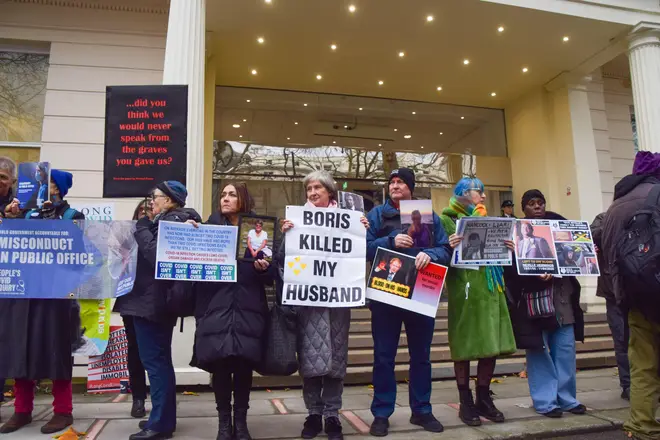
Earlier in the day, Johnson apologised for any "offence caused" by Partygate and said he "takes full responsibility" for anything the government did.
"The version of events... is a million miles from the reality of what actually happened," he said.
The former PM emphasising that civil servants believed they were following the rules and he criticises "dramatic representations" of it as "absolutely absurd".
Johnson has repeatedly insisted that he thought the events were within the rules at the time.
This includes a birthday day party that took place inside 10 Downing Street, for which Johnson was fined for attending.
The then Chancellor Rishi Sunak was also fined.
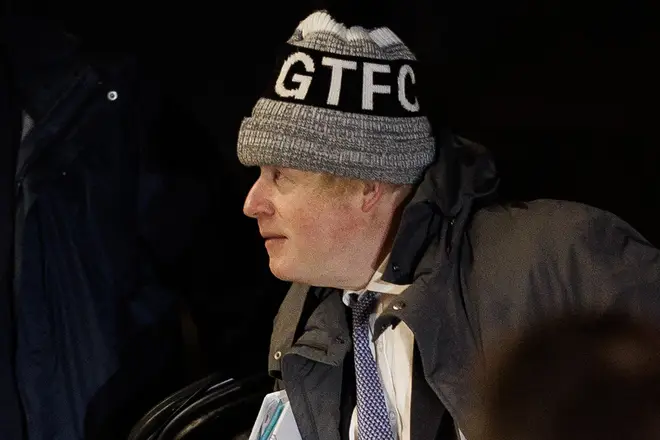
Johnson was forced to defend his attendance at the Downing Street gatherings earlier in the year as a group of MPs decided whether he had misled Parliament when he said no parties had taken place.
Had he stuck around, Johnson would have faced a by-election in Uxbridge.

On Wednesday, Johnson admitted that he and the government made mistakes during the pandemic.
He apologised for all the "pain and loss and suffering", though four women held signs during his statement which read: "The dead can't hear your apologies".
Mr Johnson also said he was initially very convinced by the idea that the UK should not enter lockdown "too early".
These arguments were "made powerfully" and had a "big effect on me", the former prime minister added.

Why were Covid regulations needed?
Covid regulations were needed because Brits needed to see other people following the rules if they were to do so themselves, Johnson said this morning.
Regional rules brought in to avoid circuit breaker
Johnson said he avoided a two-week circuit breaker lockdown in September 2020 because he thought regional regulations would be enough to stop the spread and therefore, the need for a second lockdown.
"The scientific advice was not clear, there was a push for a circuit breaker but that was not supported by the health secretary," he said.
Boris considered 'letting Covid rip'
Boris Johnson argued for letting the virus rip in meeting with chief scientific adviser Patrick Vallance.
His diary notes say he was "actually having a discussion about letting it rip", which Mr Johnson says it is what he would be expected to discuss at this point (June 2020).
Another apology
Boris Johnson apologises for "offence caused" by Partygate and "takes full responsibility" for anything the government did.
"The version of events... is a million miles from the reality of what actually happened," he says, emphasising that civil servants believed they were following the rules and he criticises "dramatic representations" of it as "absolutely absurd".
Johnson admits Barnard Castle 'was a bad moment'
Johnson's former chief adviser Dominic Cummings said he had driven to Barnard Castle to test his eyesight so he could drive back to London - despite the country being in lockdown.
Johnson said that "it was a bad moment, I won't pretend otherwise".